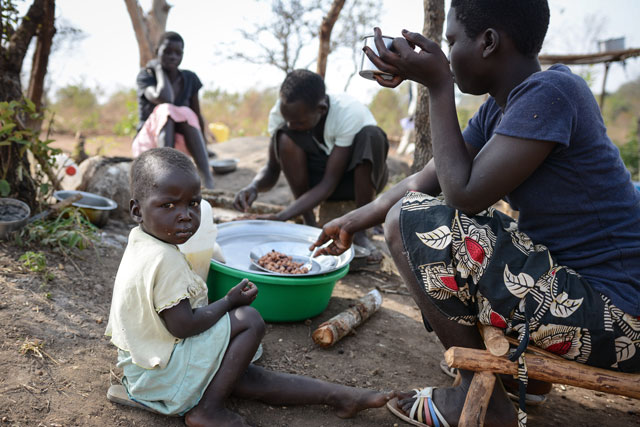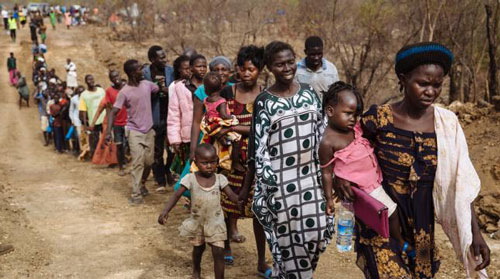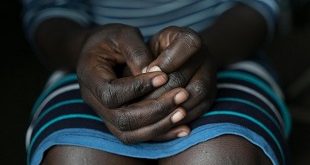
Uganda receives most new refugees worldwide, new displacement figures show
Oslo, Norway| NRC | The Secretary General of the Norwegian Refugee Council has called for worldwide support for Uganda that received the largest number of new refugees last year of more than half a million people.
“The system protecting refugees will collapse if we do not step up our support to countries like Uganda,” said Jan Egeland, Secretary General of the Norwegian Refugee Council in a statement.
“The richest and most stable countries from Europe to the US do their uttermost to keep refugees away. At the same time, they are not adequately funding reception of refugees in poor host countries,” added Jan Egeland.
Up to 65.6 million people were displaced due to war and persecution at the beginning of 2017, according to new displacement figures launched by the UN High Commissioner for Refugees (UNHCR) Monday. For the fifth year in a row, the number of people displaced worldwide continued to increase from an already historically high level.
“The refugee crisis continues unabated behind the walls and barriers Australian, US and European leaders have erected. It may have disappeared from their view, but remains a stain on our global conscience,” said Egeland.
Egeland said this in a statement ahead of World Refugee Day, Tuesday June 20 and the upcoming world leaders Solidarity Summit on Refugees in Kampala, Uganda due June 22-23.

DRC, Nigeria, South Sudan leading areas of conflict
In the shadow of the ongoing crises in Syria and Iraq, conflicts in the Democratic Republic of the Congo, Nigeria and South Sudan forced millions of people to flee their homes.
South Sudan, the world´s fastest growing refugee crisis, has by now forced 1.9 million people to flee across the border. About half of these are currently finding safety in Uganda.
Despite this, the country has received only 17 per cent of the money needed to provide the most basic support to refugees and host communities so far this year. This week, world leaders meet in Kampala for a Solidarity Summit on Refugees, where they are expected to pledge additional support to countries hosting large numbers of refugees.
“About 2,000 people crossed the border from South Sudan into Uganda each day over the last twelve months. Borders must be kept open, but we cannot expect a country like Uganda to shoulder the entire bill,” said Egeland.
Egeland called on all countries to step up to the challenges the world is currently facing:
“The historic high displacement figures must foster more dedicated work for political solutions, increase funding to meet humanitarian needs, and bring a larger willingness among all countries to take their share of the responsibility.”
“If we fail, we will be faced with a more unstable world, where the alarming high displacement figures will only continue to increase,” said Egeland.
Facts:
- 65.6 million people were displaced due to war and persecution at the beginning of 2017.
- 40.3 million were internally displaced, according to figures from NRC’s Internal Displacement Monitoring Centre (IDMC). In addition, 25.4 million people had sought refuge outside their own country, according to figures from the United Nations High Commissioner for Refugees (UNHCR).
- The number of people forced to flee has increased with more than 50% over the last five years, up from 42.3 million in 2012.
- Uganda received 532,725 new refugees last year, and was the country receiving the largest number of refugees worldwide. Most fled the conflict in South Sudan.
- All in all, more than 737,000 people fled the conflict in South Sudan last year. Only Syria witnessed a larger number of new refugees, 824,000.
- Turkey was the country hosting the largest number of refugees in the world, with 3.1 million, followed by Jordan, Palestine, Lebanon and Pakistan.
Sources: UNHCR, IDMC
 The Independent Uganda: You get the Truth we Pay the Price
The Independent Uganda: You get the Truth we Pay the Price



